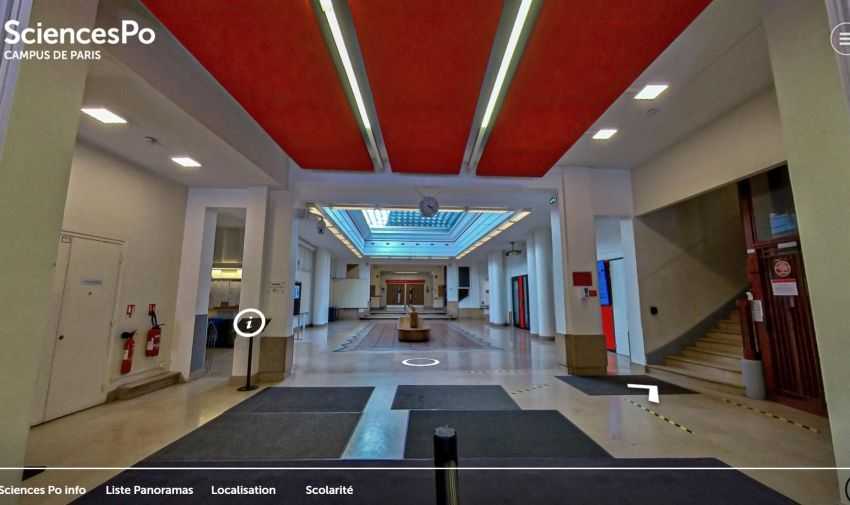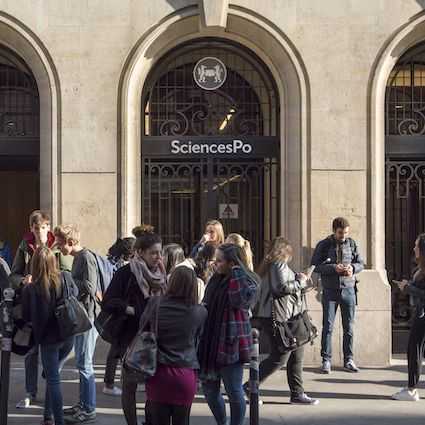
Home>Academics>Certifications>Cities and Regions
“Cities and Regions” Certification
Sciences Po Undergraduate College, in partnership with Sciences Po Urban School, offers the possibility to follow a Certification program entitled “Cities and Regions”, only on the Dijon campus. This Certification is designed as a multidisciplinary introduction to current urban and territorial issues from a social science perspective.
Delivered at the end of the Bachelor's degree program of the Undergraduate College, the “Cities and Regions” Certification is open to all students on the Dijon campus, whatever their major. Designed as an addition to the Bachelor's degree, this Certification is an asset to help students choose their master's degree and develop professional skills in sectors impacted by urban and social issues. Students will also have the opportunity to develop their professional network. The teaching experience combines the fundamentals of territorial policies with a field-based approach through meetings with local actors or site visits.
Certification process
To be eligible to the Certification, students must:
- Validate the seminar “Re-Imagining European Cities: Gender, Post-coloniality, Heritage and Networks” by Maxime Forest (second semester, 24h - 3 ECTS).
- Please note: Maxime Forest's course is also eligible for the Certification in Gender and Equality. It is not possible to combine the two Certifications; you must choose between them.
- Validate the “Data and Urban Governance” MOOC (4 modules of 2 hours each, followed by a 2-hour collective reflection during a “professional workshop”). (third semester, 10h - 2 ECTS)
- Actively participate in the preparation of an annual conference organized by the Dijon campus and the Urban School with local partners (preparation during the third semester and conference at the start of the fourth semester, 4h - 1 ECTS).
- Validate a 12-hour course on urban and regional policies , combined with a 12-hour professionalization workshop (visits and meetings with local players of Dijon's smart city) (fourth semester, 24h - 3 ECTS).
- Validate at least one field experience in an area related to urban and regional issues as part of the Civic Learning Programme.
- Submit a Capstone Project focused on the theme of the Certification (examples of topics: social and educational inequalities, inclusion and migration, health and risks, mobility, housing, territorial public policies, ecological transition, cultural strategies).
Applications for the Certification are submitted at the beginning of the third year and subject to a qualitative assessment by a scientific committee.
Frequently asked questions
You don't need to apply to the Certification in your first year at the Undergraduate College, although you may wish to inform your academic advisor of your intention to do so. After validating your chosen courses and field experiences during your first and second year of the undergraduate programme, you apply for the certification at the beginning of the third year. You will receive an email to inform you of the opening of applications.
Applications for the Certification will be subjected to a qualitative assessment by the scientific committee. Particular attention will be paid to the grades students obtain in the specific Certification courses, as well as to their progress and development over the course of their undergraduate studies.
The application, in French or in English, includes the following documents:
- The list of the labelled courses followed during the first two years of the Undergraduate College.
- The Capstone Project written in the framework of the Civic Learning Programme, following the usual writing instructions. The writings will be submitted to a referent for validation of the “Cities and regions” orientation and the excellency of the work.
- A cover letter indicating:
- The role of the Certification in the realization of the student’s future projects (studies or professional)
- The specific theme of interest linked to the Certification on which the candidate would like to work and/or get involved in the future.
- Any other element of the student’s curriculum or proof of involvement in a project linked to the topic of cities and regions, that the student wishes to bring to the attention of the scientific committee (other courses followed, associative experiences, etc.)
The application form is to be transmitted, through a Google Form, at the beginning of November (a month after the opening of applications in October). Details will be communicated by your academic advisor.
If the application is validated, the Certification is delivered by the scientific committee, in September of the year following the obtention of the Bachelor’s.
The members of the scientific committee are:
- The Dean or Executive Director of the Undergraduate College
- The Dean or Executive Director of the Urban School
- A teacher-researcher teaching one of the accredited courses
- A member of the Urban School and the University College
- The academic advisor of the Dijon campus
This committee is responsible for labelling courses and validating the students’ curriculum, as well as for suggesting evolutions for the scientific objectives of the Certification.
The scientific committee meets twice a year in the form of a jury presided by the Dean of the Undergraduate College, in charge of the validation or not of the Certification.
Yes, if you meet all the eligibility criteria listed above, you can apply for the Cities and Regions Certification, in the last year of your bachelor’s studies. For more information, contact your academic advisor at Sciences Po.
No. The “Cities and Regions” Certification at the Undergraduate College is an entirely optional programme, with no compulsory element. It allows students hoping to go on to further study or a career in a field relating to urban and territorial issues to showcase their specific skills and expertise in this area.
Prospective Students
Key Facts
- Three-Year Bachelor's Programme
- Languages: French and English
- ECTS: 180 minimum



